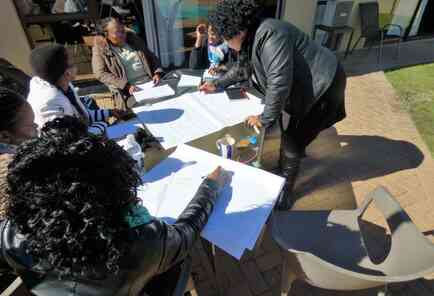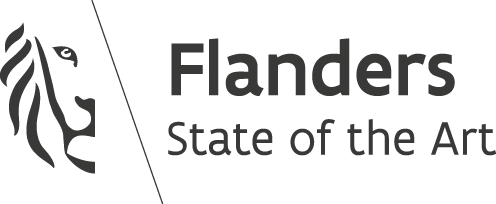The concept of Professional Learning Communities (PLCs) as a means of teacher collaboration and professional development has proven its success in the Free State province in South Africa. After many officials and teachers were already familiar with the concept, more and more teachers are coming together in PLCs.
By meeting and sharing their methods and techniques, teachers can assist each other greatly in dealing with classroom matters. During teacher-driven workshops, teachers deepen their understanding of PLCs, and it becomes clear what they find important in the classroom. They practice skills that are necessary for facilitating successful PLCs and brainstorm ideas to recruit and encourage other colleagues to participate.
Through the PLC training, teachers learn how to implement certain processes and thus put in practice what they learn during the workshops. An important part of the learning trajectory is to demonstrate how to initiate and implement the sessions. Participants learn how to start a PLC and how to take small practical steps afterwards, like ‘what to do at the first meeting’ or ‘facilitating the PLC’.
Want to learn more about PLCs? Make sure to click on this link.
In between the workshops, activities developed by teachers (during the workshops) take place. Based on their action plans, subject advisors make their own programmes on supporting the teachers and mobilizing resources. These activities allow the participants to try out ideas and to make sure that the workshops have realizable practical objectives.
We are organizing a webinar about PLCs! Click on this link to find out more.
By meeting and sharing their methods and techniques, teachers can assist each other greatly in dealing with classroom matters. During teacher-driven workshops, teachers deepen their understanding of PLCs, and it becomes clear what they find important in the classroom. They practice skills that are necessary for facilitating successful PLCs and brainstorm ideas to recruit and encourage other colleagues to participate.
Understanding PLCs
How subject advisors and teachers perceive PLCs, is indicative of their effectiveness. Therefore, a proper understanding of the concept of PLCs is important. Relationships of trust are also crucial. Subject advisors and teachers must work together. This involves teachers developing their own solutions to the challenges they face supported by subject advisors. In the Free States learning trajectories, it is noticed, that once changes in practice emerge, there is a surge in the number of PLCs, and many dormant ones resuscitate.Through the PLC training, teachers learn how to implement certain processes and thus put in practice what they learn during the workshops. An important part of the learning trajectory is to demonstrate how to initiate and implement the sessions. Participants learn how to start a PLC and how to take small practical steps afterwards, like ‘what to do at the first meeting’ or ‘facilitating the PLC’.
Want to learn more about PLCs? Make sure to click on this link.
Critical success factors
During a PLC, a teacher also gets the chance to play the role of coach as they can facilitate a PLC. This results in a collaborative and complementary working relationship between subject advisors and teachers, where officials can find their place too.In between the workshops, activities developed by teachers (during the workshops) take place. Based on their action plans, subject advisors make their own programmes on supporting the teachers and mobilizing resources. These activities allow the participants to try out ideas and to make sure that the workshops have realizable practical objectives.
Lessons learned
School managers, whether they are the principal, deputy or departmental heads, can create a conducive environment for PLCs. Involving and consulting the School Management Teams (SMTs) will enforce future trajectories. VVOB in South Africa hopes and even presumes that having more (and efficient) PLCs will gradually lead to improved learner outcomes.We are organizing a webinar about PLCs! Click on this link to find out more.
Subscribe to our (Dutch) newsletter
|
English





